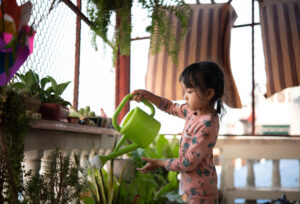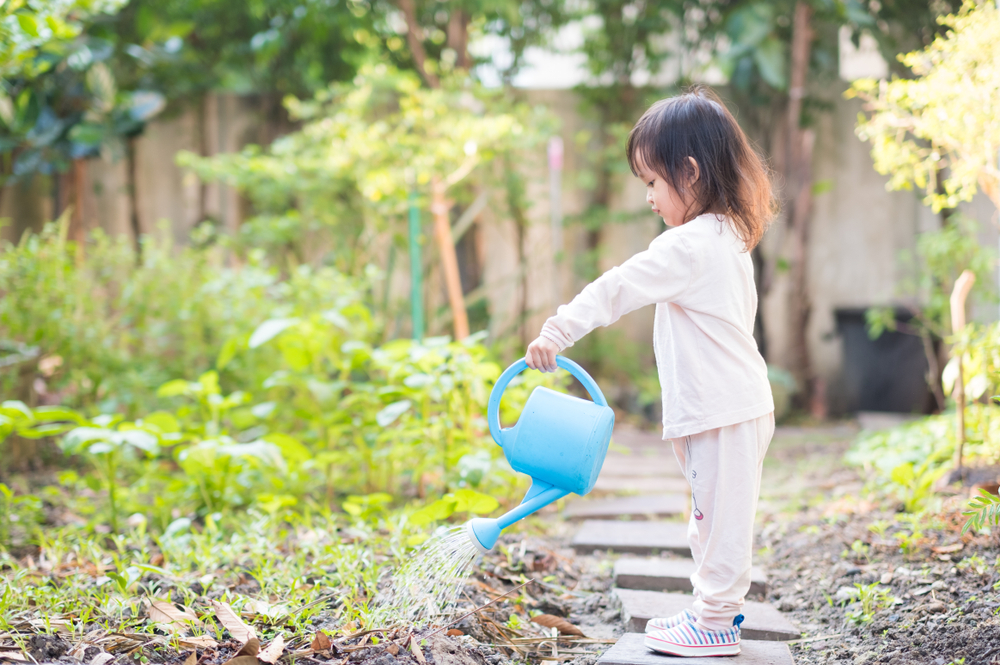Practical Life Activities in a Nursery Setting
From a young age, children show interest in adults’ activities such as cooking, cleaning, tidying
up, caring for plants and animals, and recreate them in their playing. Whilst adults are
interested in completing the task, children enjoy the process and its repetition, worrying
less about the result.
 The Montessori Method offers a practical life curriculum among its hallmarks, where
The Montessori Method offers a practical life curriculum among its hallmarks, where
children practice everyday activities included in four main areas: Elementary movements,
Exercises for the Care of the Person, Exercises for the Care of the Environment, and Exercises
for Social Skills, Grace and Courtesy.
In this blog article, I am going to concentrate on activities related to the Care of the Person
and the Care of the Environment. Care of the Person activities give children the chance to
become physically independent; they include activities such as washing hands, pulling up
trousers, wearing and zipping a coat. Care of the Environment activities show children how
to look after the environment around them by keeping it tidy and neat and appreciating it;
they include activities such as hanging and folding clothes, watering plants, and setting up
the table for a meal.
Practical life activities can be part of the daily nursery routine since they teach children to
follow a complex motor sequence, developing their concentration, independence,
coordination and sense of order.
These activities may seem repetitive and simple, however, there is a lot to discover, if you
look at them from a child’s perspective. Let us look at some of them:
After a meal, children can be given a wipe or a wet flannel to clean their faces. While
doing so, they look at themselves in the mirror developing their coordination by
wiping their face, their confidence, and independence by completing the task by
themselves and develop an appreciation of hygiene.
 At the nursery, children can set up the table for a meal. While preparing the table, they develop their sense of responsibility by giving each peer a dish and cutlery, develop their memory by remembering how to place the different items, and learn to care about their peer integrating with social life.
At the nursery, children can set up the table for a meal. While preparing the table, they develop their sense of responsibility by giving each peer a dish and cutlery, develop their memory by remembering how to place the different items, and learn to care about their peer integrating with social life.
As children learn to be caring towards each other, they can learn to look after plants. Children are naturally attracted by fruit, vegetables, and plants and explore them by sight, smell, and often tasting them as well! Having some herbs in pots can be an achievable challenge for toddlers and pre-schoolers since children can have the task of watering the plants once per day. By using a watering can, they develop their hand-eye coordination, they develop their sense of responsibility by looking after the plants, they learn discipline by regularly repeating the activity every day, and if in a nursery setting, they learn to take turns with their peers in doing the activity.
Considering everyday activities as an opportunity for children to develop their skills early in
life allows them to become confident in their capabilities while improving their sense of
discipline. Introducing these activities in the standard nursery routine allows children to gain
valuable experience that they can use in their life. Meaningful dialogue between
practitioners and parents will include encouraging parents to let children try these activities,
allowing mistakes so that children conquer the process without feeling the pressure of
achieving a result.
For more information on our nurseries, get in touch with our team today.

